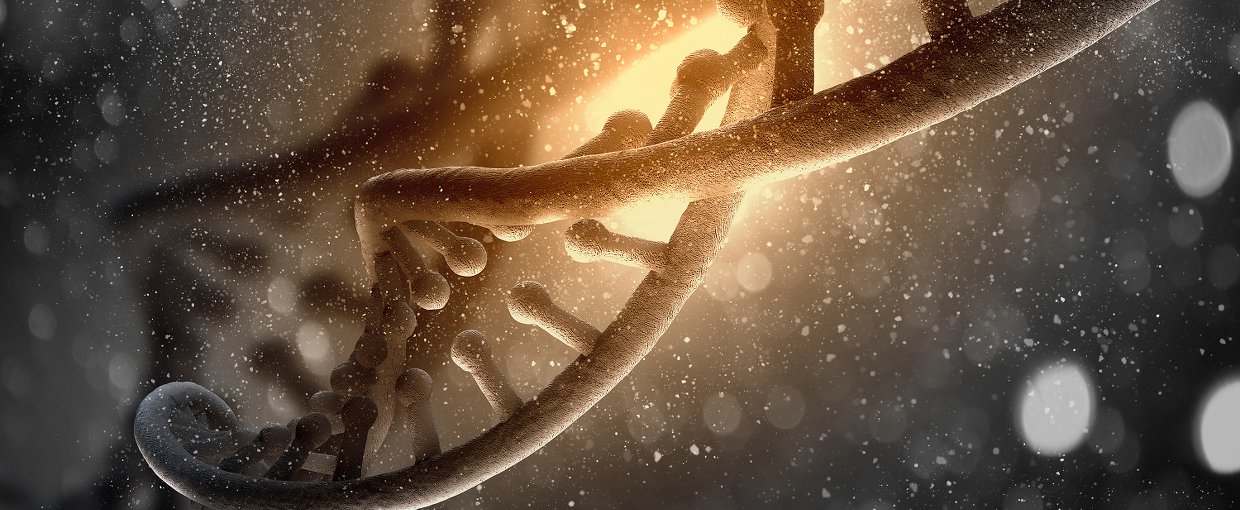
June 22, 2018
Research Highlight
Backbones of Life's Origins

Artist impression of a strand of DNA.Image credit: GA Tech/CCE.
A recent study examines the potential role of pyrophosphate linkages in prebiotic chemistry and the origins of life. Pyrophosphate linkages are important in living organisms today, and they are thought to have played a role in prebiotic chemistry. Some theories suggest that these types of linkages may have helped form some of the molecules needed for life’s origins on Earth.
Pyrophsophate linkages could have been used to form the backbones of ancient oligomers (small molecules formed from repeating units). To study this concept, a team of researchers created DNA oligomers with varying amounts of pyrophosphate inserts, and then studied how the inserts affected base-pairing of the DNA. The results suggest that pyrophosphate-linked oligonucleotides could perform some functions, supporting the idea that such molecules may have had a role in life’s beginnings on the ancient Earth.
The paper, “Heterogeneous Pyrophosphate‐Linked DNA–Oligonucleotides: Aversion to DNA but Affinity for RNA,” was published in Chemistry: A European Journal. The work was supported by NASA Astrobiology through the Exobiology Program.